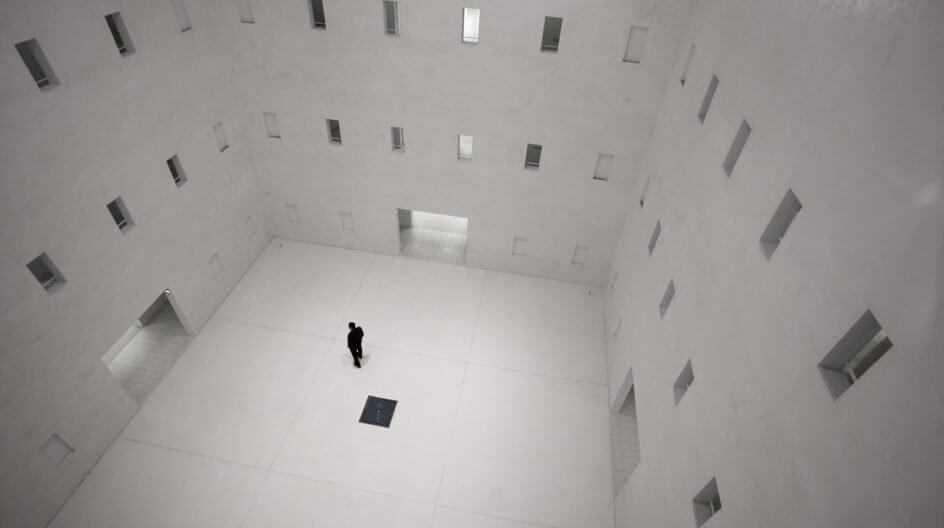Years ago, I had to make a decision: Continue my Ph.D., or pursue my desire to help people develop their social skills.
One option would lead to a stable and secure life, and it would be in a job I didn’t enjoy. The other path was filled with uncertainty, but I’d be doing something I was passionate about.
Since you are reading this blog post, you can probably guess the path I chose. But believe me, making that choice wasn’t easy.
And while decisions usually aren’t easy, we can at least learn how to make the best one.
Making Decisions = Procrastination
Here’s why we shy away from making decisions:
- Decisions often have long-lasting consequences.
- Making a decision means making a change in your life.
- Change comes with uncertainty, and uncertainty always leads to fear that things might go terribly wrong.
That’s scary stuff! No wonder you want to make the perfect decision.
So, you think:
‘Unless I get this perfectly right, I’d rather not make a decision at all.’

And now you’re in the realm of perfectionism and procrastination. Because decisions are so damn hard.
I’m going to let you in on a secret. Are you ready? It’s going to be a shocker!
I actually LOVE hard decisions.
2 Reasons Why Hard Decisions are Awesome
Reason #1: Hard decisions define who we are
Imagine what it would be like if life only offered you easy decisions:
Do you take that job with high pay, awesome hours, lots of benefits and access to your own private beach? Or that job where you have to work 12h a day on minimum pay wrestling with rabid cockroaches in a dark basement?
Do you rent this beautiful rooftop flat with a jacuzzi and helicopter pad that’s a total bargain – or that overpriced windowless shack where you keep fighting cockroaches even after you’re off the clock?
If your life would only be filled with choices like these, you’d have it easy, right? You would make perfect decisions all the time. Only governed by reason, you would be perfectly predictable from your first day on the planet to your last.
You would go through your entire life like a computer program.
Let’s replace those with hard decisions:
Do you want to take that job that pays just enough but allows you to make your own schedule and have a home office? That way you can spend more time with your kids and build that treehouse – which would be an amazing home office, by the way. Or do you take the job that requires you to stay in the office for ten hours a day – so that you can make sure your family is doing well financially and your kids can go to college?
Do you take that awesome apartment in the city that’s certain to boost your social life but eats up most of your paycheck, or do you move into your parent’s basement so that you can save up for that business you always wanted to start?
The tricky thing with hard decisions is this: Both options are equally good (or bad).
That eliminates the possibility of finding the 150% perfect answer. Because It’s no longer about logic or reason.
Now it’s about the question:
“Who do I want to be?”

When I made the decision to give up on my Ph.D. and pursue a business idea, it wasn’t based on a single objectively measurable criterion – it was about who I am.
I don’t know about you, but “Who do I want to be?” is a question I love asking myself. “What would a computer do?” is just plain boring.
Reason #2: Hard decisions allow us to learn and grow
Psychology professor Dan Ariely says that we feel more regret when we caused it through action, and less regret when we caused it through inaction.
For example, if you sell your vintage “My Little Pony” collection and a day later the price for it doubles, your regret-o-meter probably shoots up to 12 (at least, that’s what happened to Johnny).
On the other side, let’s say you keep it stashed away in the basement, and one day you find out that your collection lost half its value. You’ll still feel regret that you didn’t sell it earlier, but your regret-o-meter is probably far away from glowing bright red.
Subconsciously, we are aware of this: we minimize the risk of regret by not taking any action.
But that’s only true for the short-term.
In the long-term, the regret caused by our actions actually hurts less. That’s because, given some time to reflect, our brain can turn that regret into a learning experience, according to psychologist Dan Gilbert.
If your brain sounds anything like mine, this is what it sounds like:
“Ooops, probably shouldn’t have done that! Now, how can I do this better next time?”
Gilbert calls this our “Psychological Immune System”. It can’t make the regret go away (at least, not all of it), but it can create something out of it.
Note that regret turns into a lesson only if that mistake was caused by an action we took.
When regret is caused due to inaction, there’s nothing to be learned for the future, and nothing to transform your regret into.
No one ever learned anything by doing absolutely nothing. (Look out for this quote at the T-Shirt shop of your choice)
Ok so now that we agree on the fact that hard decisions are the coolest thing since bacon got invented, let’s look at a few ways to 10x your decision making:

2 Ways to Improve Your Decision-Making Skills
#1: Focus on an ideal process instead of an ideal outcome
Look, I’m going to rip off the bandaid.
No amount of research and even the longest pro-and-con list is going to guarantee a perfect decision. You will never know everything there is to know.
Let’s say that right now, job option A looks a lot better than job option B. But then management changes a few weeks after you moved into your office. And suddenly your new job requires you to share your office with 23 ill-tempered chicken and a horse.
I know! Who could have known!
As if the fact that you can’t google the future wasn’t bad enough, you’re also dealing with a lot of cognitive distortions while making your choice. And those can really mess with your reasoning skills!
Ok, I get it. Decisions are hard, and we want to obsess about them.
Let’s at least agree to obsess about the right thing. Since we cannot guarantee the best outcome, let’s instead focus on the best possible process to get to an outcome.
Instead of asking yourself: “What’s the right decision?”, ask yourself, “What’s the right way to make the decision?”
Before you fire up the internet and jot down a pro and con list on paper, ask yourself:
- What do I need to know?
- Who could I ask?
- What’s non-negotiable?
- What’s unimportant?
Now, these are really just examples. There might be different questions that you want to ask, and there might be many more as well.
Trying to tell you what the perfect process is, would be a bit like trying to tell you what the perfect outcome is. It’s going to depend on who you want to be, and what’s important to you.
#2: Include feedback loops
Raise your hand if you can ride a bicycle.
How did you learn it? Did you get good at riding a bicycle by thinking about it? Or by playing Paperboy on your SNES? By watching others ride their bikes? Maybe that all helped just a bit (and let’s face it, Paperboy was awesome).
But what really made you that pink flash of lighting that you are today are the hours you spend on the bicycle, and the hundreds of times you fell off. Let’s face it – you probably learned more from one fall than you did from an hour of staying on.
There simply is no learning without getting feedback.
Eric Weinstein calls this ‘Tuition from the Market’ – you can only learn and improve if you take action, and then see what feedback you get.
Just in case this isn’t obvious, taking action and getting feedback are not always one and the same. You can write a hundred blog posts and never publish any of them.
That’s a lot of action, and exactly zero feedback.
You’ll probably still get a little better with each one. But just imagine how that process would be accelerated if you added that Tuition from the Market!
Yes, sometimes that feedback is going to sting a bit – just like falling off the bike.
From now on, go that extra step. Make it a rule to include as many feedback loops as you can into everything you do. Not only will you improve much quicker, you’ll also get a lot better at receiving feedback!
Doesn’t sound like a hard decision to me.



